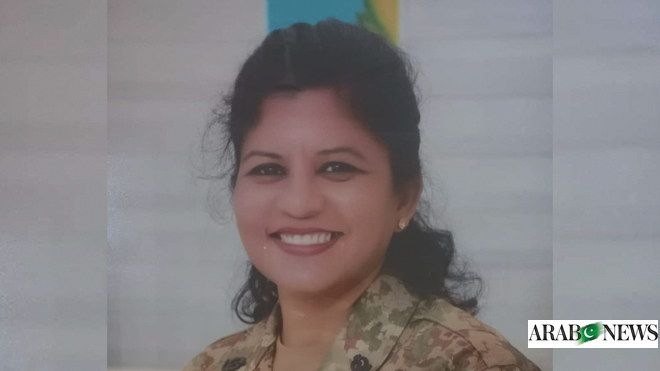ISLAMABAD: In the small, sealed room at Multan’s Nishtar Hospital, the temperature is colder than the outside air, where three patients lie in beds receiving intravenous drips and a round water cooler with the word “ORS,” for oral rehydration solution, sits on a table.
This is a view of “Heat Wave Bay,” a separate ward for heatstroke patients, at the city’s largest public hospital. The 1,000-bed hospital, which has been in operation since 1953, has earmarked two rooms in its emergency ward for patients with dehydration, high blood pressure, diarrhea and other heatstroke-related risks.
The initiative comes as the Pakistan Meteorological Department (PMD) warned of multiple heatwaves in the country through June. Temperatures soared to 52.2 degrees Celsius (126 degrees Fahrenheit) in parts of Pakistan last week as South Asia is hit by a heatwave that scientists say is being exacerbated by human-induced climate change.
“We are definitely seeing patients with heatstroke at Nishtar Hospital,” medical director Dr. Mohammed Kazim Khan told Arab News on Friday. “Two to three patients with heatstroke are coming every day.”
The hospital has also been treating patients with dehydration and high blood pressure in recent weeks.
Khan said the hospital’s “heat stroke unit” has central air conditioning and patients have access to a full range of medicines and oral rehydration solution – a solution of water, salt and sugar to replenish electrolytes lost through dehydration.
According to the medical director, in cases of heatstroke, patients will stay in the facility for up to eight hours before being discharged as per doctor’s orders.
“Otherwise, if there are any complications, we shift the patient to a ward where he/she will spend a day or two and then discharge them again,” he said.
Muhammad Mazhar, 50, said he was treated at the hospital on Thursday night after suffering from diarrhoea and vomiting. He was given intravenous fluids and released after his condition improved, but his condition worsened on Friday.
“I came back here an hour ago and had another infusion,” Mazar told Arab News. “I am feeling better now.”
Amna Bibi, 45, was taken to hospital complaining of abdominal pain.
“I’ve been sick for the last five years,” she said. “I’m losing consciousness. [whenever the heat gets too much] I also have heart disease and diabetes.”
Mazhar said the weather in Multan has become “unbearable”.
“The heat in Multan is terrible,” Mazhar said. “When you go outside you feel like you’re walking on coals.”
Khan urged people to be careful during the heatwave, advised them to avoid unnecessary outings and stay hydrated by drinking plenty of water and juices.
Diabetes, heart disease and respiratory illnesses linked to heatstroke could become “extremely dangerous” for patients during heatwaves, he warned.
“If there is no rain and temperatures remain high, there will definitely be a major disaster,” the official said.
“There is a possibility that the number of heatwave patients may increase.”

